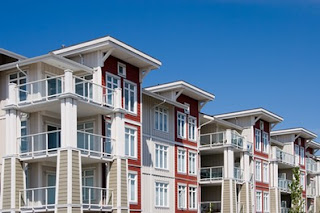When a condo is bought and sold a condo inspection is highly recommended to alert both buyers and sellers to the condition of the property in question. The condo inspector’s role is to enter the condo and analyze all of the major operational and structural elements of the property which usually spans three hours for detached single homes, and two hours for condominiums, but can depend on the size, age, and complexity of the property. I always encourage clients to attend the inspection as an opportunity to hear verbal feedback from the inspection, as well as a last opportunity to be within the condo before waiving conditions for a more prolonged duration than the viewing. Typically, the participant requesting the inspection will be provided a detailed report of findings with written and visual components. Below I’ll discuss some myths regarding condo inspections as well as how to select a trained professional that can advise you on one of the biggest purchases of your lifetime.
One of the most prevalent myths is that condo inspections are not required for new builds. I cannot stress enough that this statement is inaccurate. Just because your condo is brand new unfortunately does not mean it will be problem-free. After spending months saving for your very own piece of home, carefully selecting your neighbourhood and hand selecting the professionals that represented you in the buying process, the last thing you want to do is gloss over the tangible aspect of the contract; your condo. Instead of potentially spending large sums to correct issues down the road re-actively, performing a condo inspection can be a preventative step towards condo ownership. Some clients argue the cost of an inspection isn’t justified, but if you have spent hundreds of thousands of your hard earned money saving for a place to call your own, to skip out on a few hundred dollars seems like a poor investment decision. You wouldn’t buy a car based on a kick of the tires and without a test drive, consider a home inspection your testing opportunity.
Another myth to debunk is that condo inspections are only for buyers. A seller who is providing transparency of a seller’s inspection boasts confidence of ownership that can back your asking price (and potentially then some) to condo buyers that are attempting to work quickly to lock down a property. Providing unbiased, professional proof that the operational and structural elements of your condo are top notch is extremely desirable to sellers, especially first time buyers who may not be versed with home repairs.
So we have exposed some of the most common myths associated with condo inspections and we have sold you on the idea of protecting your investment, but how do you select a trained professional? First, inquire if the other participant will be selecting a home inspector and which company. We suggest gaining this knowledge to select a differing company to rule out bias, fraud, or deception. Two impartial condo inspections are invaluable. While professionals in the buying and selling process can advise you on home inspection selection, it is always encouraged to analyze reviews, and request referrals from the inspector to ensure quality, professional work has been performed previously. Lastly, I encourage being well versed with what elements of your condo will be analyzed by the inspector. Typically, topics of plumbing, electrical, chemical concerns (think asbestos), pests and infestations, heating and air conditioning systems, as well as structural elements are all considered and should be thoroughly documented within the reports the inspector provides. We recommend being prepared to ask your inspector the following questions, trust me, your due diligence will pay off!
- What professional home inspection associations are you a member of?
- What is your background (typically inspector’s transition from a trade)
- How many years have you been an inspector? What property types do you specialize in?
- What is the typical duration of your condominium inspections? May I attend the inspection?
- What operational and structural components will you be inspecting?
- Can you provide me an example of the home reports you provide clients?
If you’re looking for a home inspector that can answer all these questions with confidence, Inspect it All 306-551-3832 to schedule your appointment today.


Comments
Post a Comment